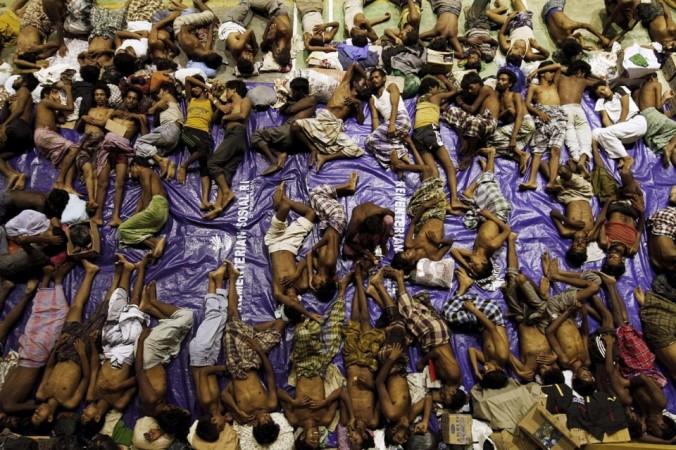Nearly 1.25 lakh Rohingya Muslims of Myanmar have reportedly fled to Bangladesh to seek refuge from the brutalities perpetrated on them in their country. The mass exodus of the community has put immense pressure on Myanmar's leader Aung San Suu Kyi, as Muslim-majority countries like Bangladesh, Pakistan and Indonesia are pressing the nation to curb violence against Rohingya Muslims.
On Monday, Indonesian Foreign Minister Retno Marsudi met the Nobel Peace Prize laureate and Myanmar Army chief Min Aung Hlaing to seek a halt on the bloodshed.
"The security authorities need to immediately stop all forms of violence there and provide humanitarian assistance and development aid for the short and long term," Marsudi was quoted as saying by Reuters.

The latest string of violence in Myanmar's northwestern Rakhine state began on August 23 when Rohingya insurgents reportedly attacked various police posts and an army base. A military counter-offensive and clashes led to a loss of at least 400 lives and initiated an exodus of the villagers in the region to Bangladesh.
Suu Kyi's biggest challenge now is to tackle the issue effectively, as Western critics are accusing the country's leader of not speaking out for the minority which forms roughly 1.1 Muslim Rohingyas. The community has been complaining of persecution for years on end.
"Indonesia is taking the lead on this and ultimately there is a possibility of ASEAN countries joining in," HT Imam, political adviser to Bangladesh Prime Minister Sheikh Hasina, told Reuters, referring to the 10-member Association of South East Asian Nations, of which both Myanmar and Indonesia are members.
"If we can keep the pressure on Myanmar from ASEAN, from India as well, that will be good."
Myanmar, however, has said that its security forces are fighting a fair campaign against "terrorists" responsible for a series of attacks on the army and police posts since October 2016.
















